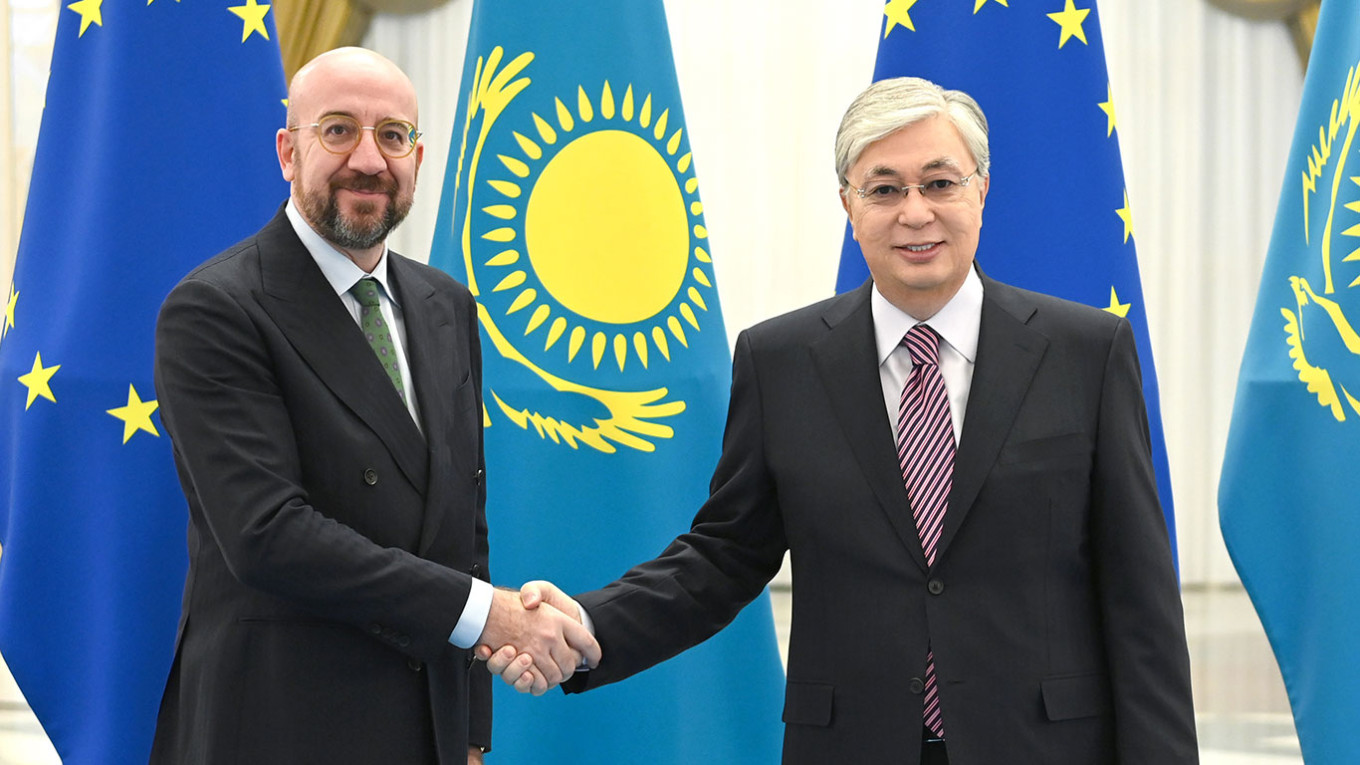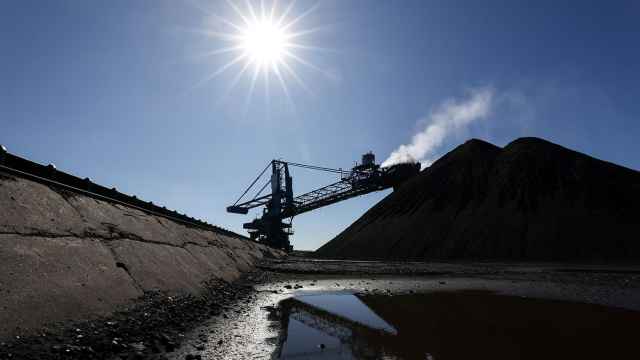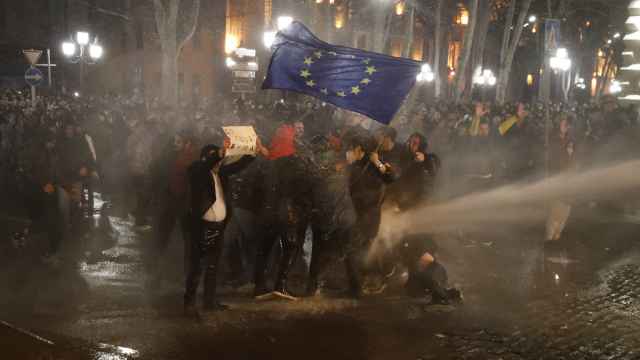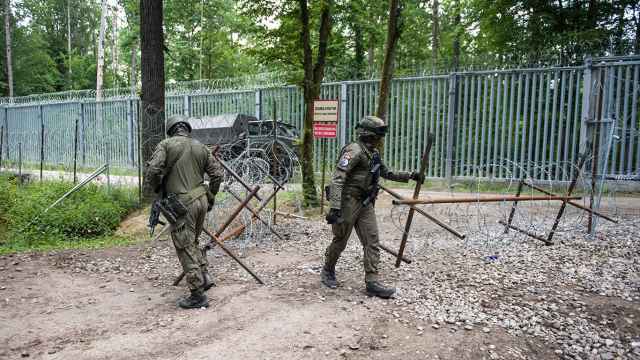EU chief Charles Michel called on Thursday for closer ties with Central Asia on his first official visit to Kazakhstan, the main economic powerhouse in a region where Russia's influence has come under question.
In the first European Union-Central Asia summit, Michel met the leaders of the region's five countries — Kazakhstan, Kyrgyzstan, Uzbekistan, Tajikistan and Turkmenistan.
He described the gathering as "much more than just a policy dialogue between two regions."
"It's a powerful symbol of our reinforced cooperation and a strong signal of the EU's commitment to this region," he said.
Michel's visit to the Kazakh capital Astana comes eight months into Russia's invasion of Ukraine, which has made Moscow's former Soviet neighbors nervous and intensified the Kremlin's clash with the West.
In a joint statement, Michel and the Central Asian leaders said they agreed to "continue building a strong diversified and forward-looking partnership underpinned by shared values and mutual interests."
Michel's visit comes two weeks after Astana hosted several summits attended by Russia — as well as by China and Turkey, which are also seeking to strengthen their influence in the region.
"Central Asia and Europe are coming closer together and becoming more and more connected," Michel had told a press conference with Kazakh President Kassym-Jomart Tokayev in Astana.
The head of the EU Council said Kazakhstan was a "crucial partner" and the EU hoped to "develop our cooperation."
He singled out Kazakhstan as a major trading partner for the EU and called for investment in transport infrastructure in the country, which has looked to reduce dependence on Moscow since the latter sent troops to Ukraine.
'Geopolitical balance'
Since the start of Moscow's invasion in February and the subsequent Western sanctions slapped on Russia, "Central Asian countries have been trying to strike a geopolitical balance," Kazakh political analyst Dosym Satpayev told AFP.
The traditional allies of Moscow have trod a fine line on the Kremlin's attack on Ukraine, neither condemning nor openly supporting it.
Tokayev even clashed with Russian President Vladimir Putin publicly in June, refusing to recognize the self-declared separatist republics controlled by pro-Moscow rebels in eastern Ukraine.
Russia has since claimed to have annexed the regions.
"The European Union has a very good opportunity to strengthen its position in Central Asia," Satpayev said.
He said this was especially true in Kazakhstan — the only country in the region that has signed an enhanced partnership and cooperation agreement with the EU — and neighboring Uzbekistan, where Michel is expected on Friday.
Meanwhile Astana is seeking new routes for oil exports, around three-quarters of which transit Russia.
In early July, Tokayev pledged greater energy cooperation with the EU.
In a joint statement on Thursday, Tokayev and Michel said they discussed how to avoid "unintended negative impact on Kazakhstan's economy" of EU sanctions against Russia, imposed over the Ukraine conflict.
They also discussed relocating to Kazakhstan "European manufacturing companies", whose products are not subject to sanctions.
Since the outbreak of war in Ukraine, Russia has twice halted Kazakh oil exports, citing technical and security reasons.
Rich in hydrocarbons and minerals, Kazakhstan lies at the heart of China's massive new silk road project.
Like Beijing, Turkey is also advancing its interest in the region, highlighting ethno-linguistic and religious ties to Central Asia.
A Message from The Moscow Times:
Dear readers,
We are facing unprecedented challenges. Russia's Prosecutor General's Office has designated The Moscow Times as an "undesirable" organization, criminalizing our work and putting our staff at risk of prosecution. This follows our earlier unjust labeling as a "foreign agent."
These actions are direct attempts to silence independent journalism in Russia. The authorities claim our work "discredits the decisions of the Russian leadership." We see things differently: we strive to provide accurate, unbiased reporting on Russia.
We, the journalists of The Moscow Times, refuse to be silenced. But to continue our work, we need your help.
Your support, no matter how small, makes a world of difference. If you can, please support us monthly starting from just $2. It's quick to set up, and every contribution makes a significant impact.
By supporting The Moscow Times, you're defending open, independent journalism in the face of repression. Thank you for standing with us.
Remind me later.






